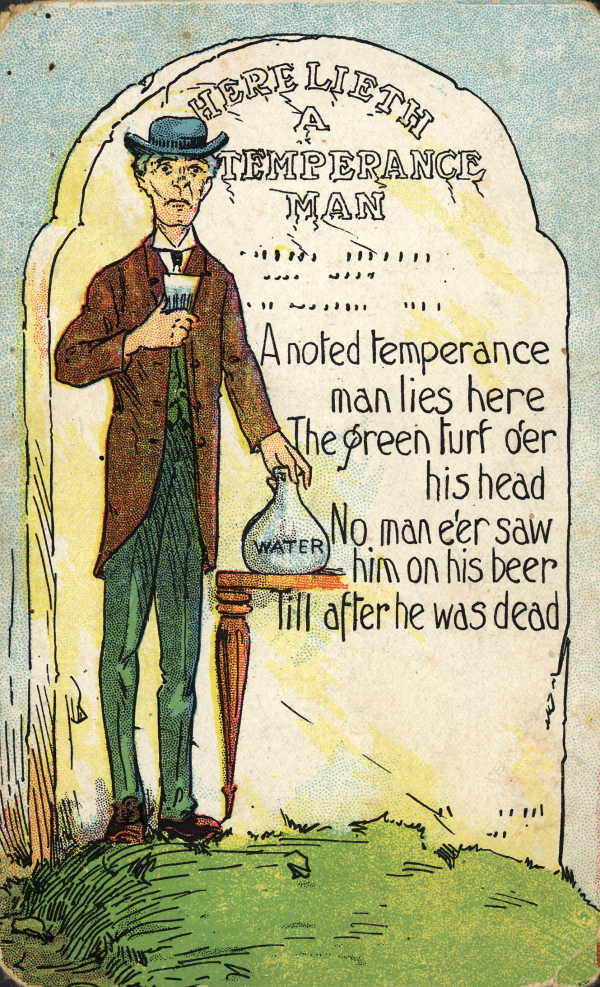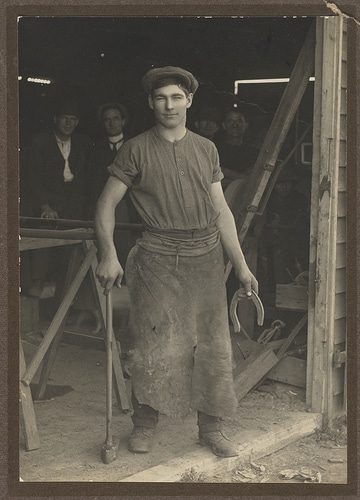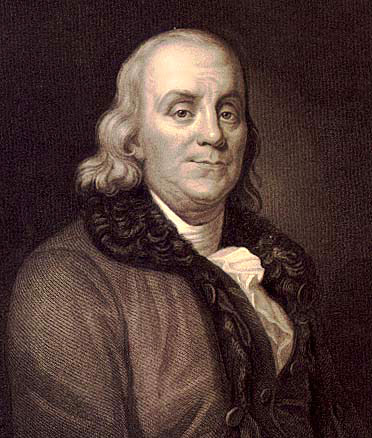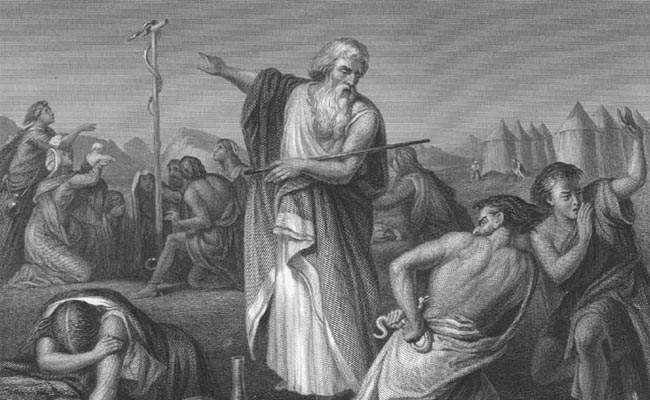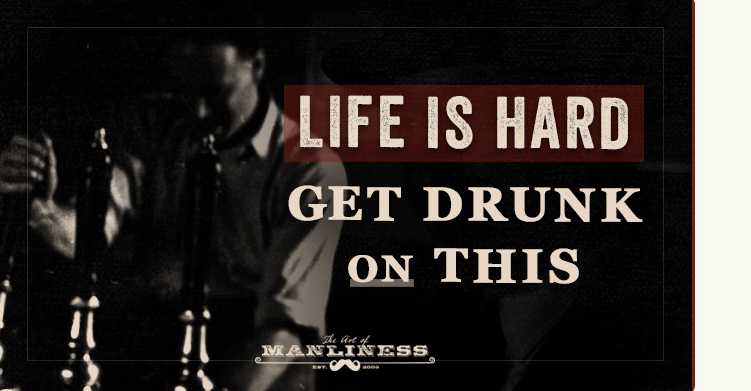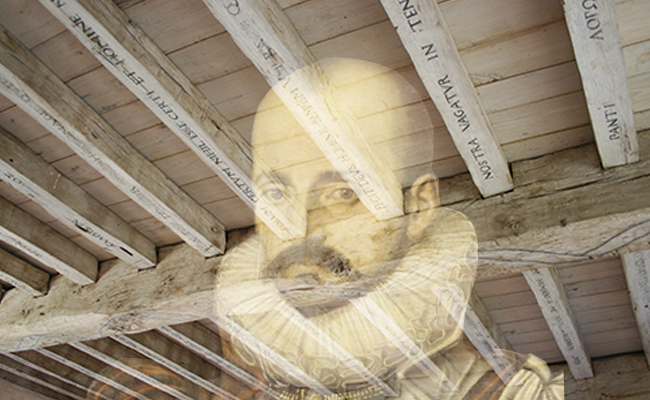
Step inside the homes of many middle-class, middle-aged Americans, and you’ll find decorative wooden signs and vinyl lettering upon the walls that declare things like:
“Live, Laugh, Love”
“Bless This Mess”
“Family Is Everything”
“It’s Wine O’Clock”
It’s the kind of stuff you see at Hobby Lobby or in the Instagram feeds of moms pumping out relatable mom content.
It’s the kind of stuff the Zoomer generation thinks is dorky and calls “cheugy.”
It is pretty dorky. At least as far as the tired, cliched phrases people tend to choose to adorn their abode.
But the basic impulse to surround oneself with inspirational quotes isn’t unique to our time, and is actually a pretty sound idea.
The philosopher and essayist Michel de Montaigne was a fan of the practice all the way back in the 16th century. He inscribed inspirational sayings on the ceiling of his study that were decidedly more heady and less eye-roll-inducing than “Live, Laugh, Love.”
But before we get to those inscriptions, we’ve got to talk about Montaigne’s study, surely one of the most interesting of history’s various libraries and man rooms.

The tower of Montaigne’s castle chateau.
Montaigne lived in a castle, and when he retired from public service in his late thirties, he had one of its towers renovated to his specifications. The tower’s first floor had a chapel for private worship, the second floor served as a bedroom, and the top floor contained his study and his massive library of over a thousand books.
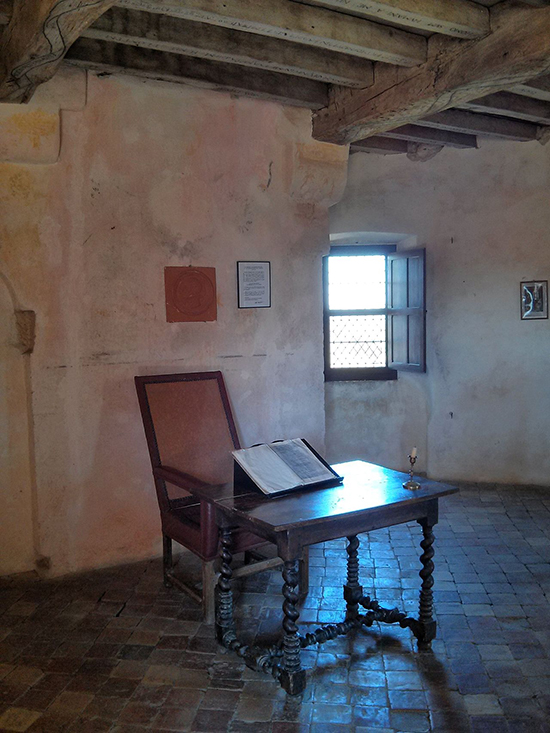
Montaigne’s desk where he wrote his famous Essays.
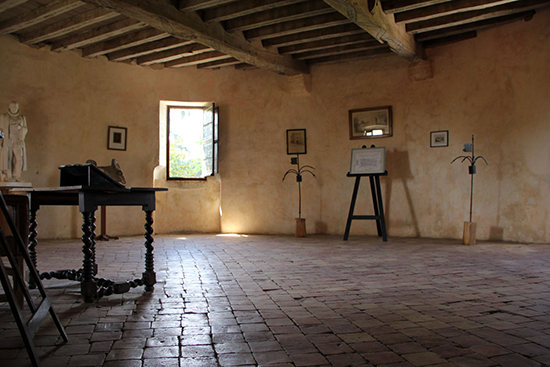
Montaigne’s study.
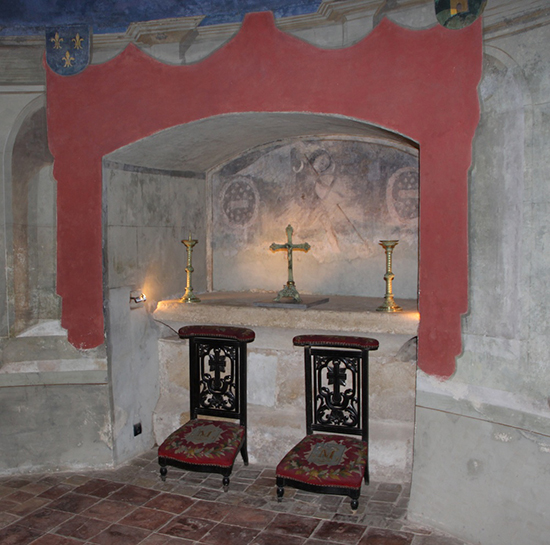
Montaigne’s private chapel.
While occasionally interrupted by domestic duties and political responsibilities, Montaigne spent much of the next twenty years within the walls of this three-story sanctuary, studying and writing his famous essays. The tower was a physical manifestation of his metaphorical idea of having a “backshop” of the mind — a place where one could be alone with his thoughts and privately tinker with ideas without worrying about the mundanities of day-to-day life and the opinions of others.
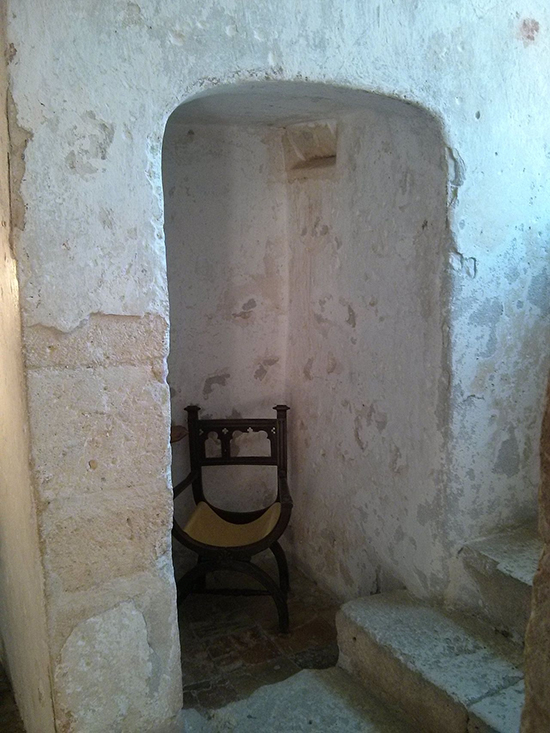
According to French Wikipedia, this is “The hiding place that Montaigne used to hide from unwanted visitors.” Brilliant!
I’d love to have a tower like Montaigne’s. A retreat where you could worship, sleep, and study all in one place. Heavenly!
But back to those inspirational ceiling inscriptions.
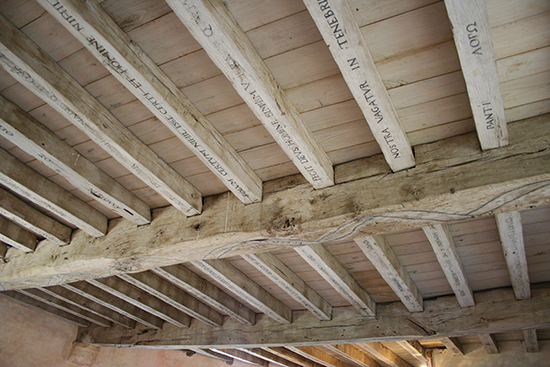
To stimulate philosophical inquiry as he wrote his essays, Montaigne had fifty-four Greek and Latin maxims painted on the ceiling beams of his library/study. The quotes came from the Bible (the book of Ecclesiastes, often paraphrased in Montaigne’s own words, was a favorite) and classical authors like Lucretius, Horace, and the Greek skeptic Sextus Empiricus.
Montaigne sometimes sprinkled the ceiling maxims verbatim into his writing, as they related to the general, reoccurring themes of his work: the vicissitudes of fortune and the limits of human reason and knowledge. Basically, “Life is hard, man!”
I can imagine the philosopher staring up at the ceiling with his hands behind his head, reading a quote and being inspired to jot down some adage of his own on the finitude of life.
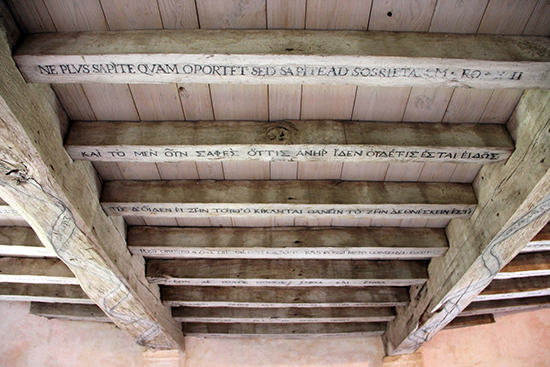
Below you’ll find some of the quotes Montaigne inscribed on the beams of his ceiling. (For a full list, and more on their sources, you’ll find a scrupulously documented and analyzed collection here.) Maybe you’ll get some philosophical inspiration from them.
While everyone’s ego could use a prodigious, humility-generating punch from time to time, most people aren’t likely to find Montaigne’s skeptical, sobering brand of motivation to be their cup of tea. But use the overarching idea of his practice as inspiration for creating your own: consider making some signs or vinyl lettering of quotes that mean a lot to you personally and sticking them on the walls, mirror, or ceiling in your bedroom, bathroom, or study. Such “moral reminders” can help you keep your principles at the forefront of your mind and improve your character — at least when they point beyond simply living, laughing, and loving.
all we who live, or fleeting shadows.”
Because not thinking is the most painless evil.”
Whom a chance occasion destroys utterly?”
and living is dying?”
but that which they think about them.”



